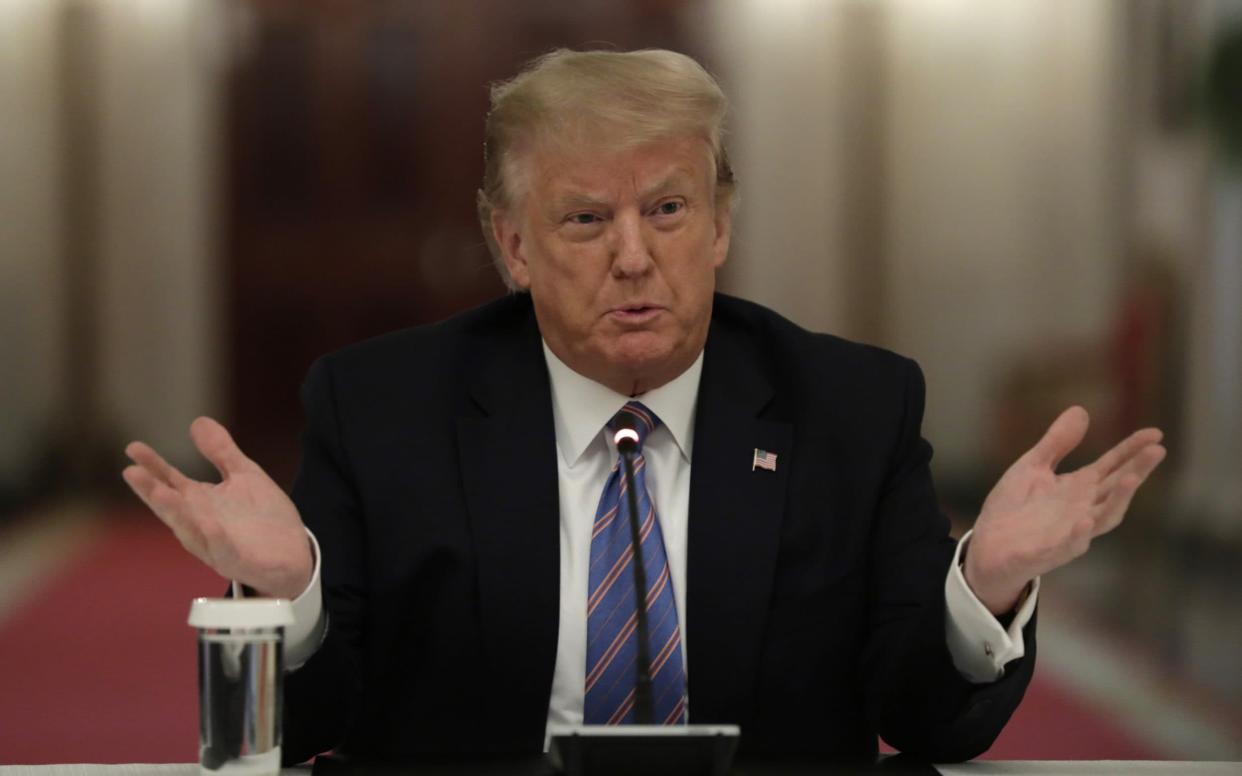US withdrawal from WHO could trigger a wider exodus, health experts fear


There are growing fears that the United States’ decision to break ties with the World Health Organization could trigger a wider exodus and undermine global collaboration beyond the current coronavirus pandemic.
The Trump administration formally notified the United Nations that it will pull out from the WHO on Tuesday, prompting widespread condemnation from experts who warned that the move marks the “end of an era of United States global health leadership”.
But there are also concerns that the decision could spur other governments whose leaders are aligned with Donald Trump’s populist politics, such as Brazilian President Jair Bolsonaro, to quit the organisation.
“I don’t think we’re at the end of withdrawals from the WHO,” Dr Clare Wenham, assistant professor in global health policy at the London School of Economics, told The Telegraph. “Is Bolsonaro going to pull Brazil out? Which other countries might follow suit because of populist beliefs?
“Or perhaps more pertinently - we don’t know what’s happening behind the scenes. The Trump administration might be having conversations with the governments he funds through Pepfar [The President's Emergency Plan For AIDS Relief], for example, and say we’ll give you this money directly if you pull out of the WHO.”
Dr Wenham said that the withdrawal would have “lasting repercussions beyond the coronavirus”, fragmenting international cooperation and shifting influence away from the US - especially as the country is considered to have handled the pandemic badly.
“The US withdrawal from WHO is a mistake,” added Tom Tugendhat, a Conservative MP and chair of the Foreign Affairs Committee. “It is the public health authority for the world’s poorest and many will now see the US as less reliable, diminishing its influence.”
Joe Biden, US Democrat presidential candidate, has already said that if he wins the election in November he would restore funding to the WHO.
The US withdrawal from @WHO is a mistake. It is the public health authority for the world’s poorest and many will now see the US as less reliable, diminishing its influence.
You may not like how things are going while you’re at the table but leaving it won’t make it better.— Tom Tugendhat (@TomTugendhat) July 8, 2020
Prof David Heymann, infectious disease expert at the London School of Hygiene and Tropical Medicine and former WHO assistant director, said other countries have already “stepped up” to fill the financial void.
The US withdrawal will leave a funding shortfall of around $426m in an organisation that already operates on a shoestring budget of around $2.4bn per year. In comparison the NHS annual budget is roughly £130bn, while the US Centers for Disease Control runs on around $6.5bn a year.
Speaking at a Chatham House event on Wednesday - which Dr Tedros Adhanom Ghebreyesus, director general of the WHO, pulled out of at the last minute due to “a series of diplomatic meetings” related to the US withdrawal - Prof Heymann singled out Germany as a rising force in public health.
Last month Germany’s health minister, Jens Spahn, announced the country will commit more than €500m (£450m) to the WHO this year. During the same press conference, France said it would commit an extra €140m.
On Wednesday Mr Spahn said the US decision was a “setback for international cooperation” and said Europe would work to reform the UN health agency.
Dr Wenham said that Scandinavian countries, Canada and Australia were likely to provide extra funding in due course, given that these governments stepped in when women’s health organisations lost funding when Mr Trump introduced the “global gag rule” in 2017.
But China may also take advantage of the void left behind by the US - throughout the pandemic, the WHO has become a proxy battlefield for a power struggle between the two superpowers.
Juergen Hardt, a foreign policy spokesman for German Chancellor Angela Merkel's center-right coalition, said that the US withdrawal damages American and Western strategic interests just as China has been taking a greater role in international institutions.
“As the biggest contributor so far, the US leaves a big vacuum,” Mr Hardt said. “It is foreseeable that China above all will try to fill this vacuum itself. That will further complicate necessary reforms in the organisation,” he said.
Lawrence Gostin, the faculty director at Georgetown’s O’Neill Institute for National and Global Health Law, tweeted: “Can there be any winners from Donald Trump’s unilateral threat to withdraw from WHO?”
“There is a clear loser, the USA, which will lose global influence, with our citizens less safe and secure. There also may be a winner, China, which could help fill the gap in US loss of leadership,” he said.
Prof Gostin was one of 750 US public health leaders to sign a letter last week urging Congress to block the withdrawal. While the WHO constitution itself does not include a framework for how member states leave, Congress passed a joint resolution which detailed how the country might exit in 1948.
The legislation requires the administration to provide WHO with a year's notice period and stipulates that all outstanding dues are paid - the US currently owes the WHO $203m (£161m), which was not mentioned in the administration's notice of withdrawal.
“It is unthinkable and highly irresponsible to withdraw funding from the WHO during one of the greatest health challenges of our lifetime,” added Jeremy Farrar, director of Wellcome and a member of the UK’s Scientific Advisory Group for Emergencies (Sage).
“Health leaders in the USA bring tremendous technical expertise, leadership and influence, and their loss from the world stage will have catastrophic implications, leaving the US and global health weaker as a result.”
Protect yourself and your family by learning more about Global Health Security


